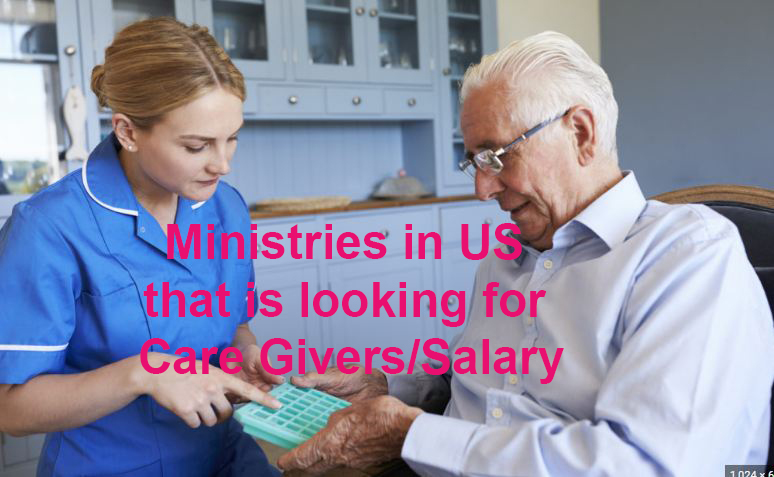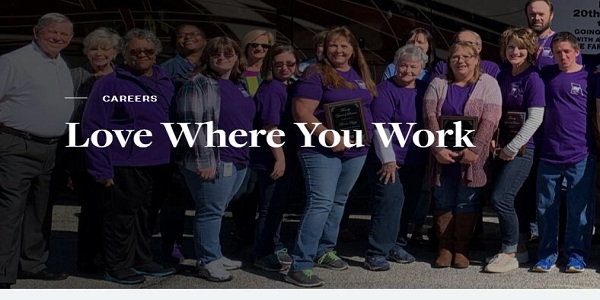Care Givers Job in United State | In the United States, various government agencies and ministries focus on providing care and support services to vulnerable populations. While these organizations may not directly employ caregivers, they often work with caregivers and care providers to ensure the well-being of individuals in need.
Care Givers Job in United State
The earnings of caregivers in the United States can vary widely depending on factors such as location, level of experience, type of caregiving role, and employer. Generally, caregivers may be compensated through hourly wages, salaries, or contract arrangements.
Care Givers Earn How Much in United State
Here are some factors to consider when estimating the earnings of caregivers in the US:
Type of Caregiving Role:
- In-home caregivers: Caregivers who provide assistance and support to individuals in their homes may earn hourly wages or salaries. Rates may vary based on the level of care required (e.g., companionship, personal care, medical assistance) and the complexity of tasks involved.
- Facility-based caregivers: Caregivers employed in nursing homes, assisted living facilities, or residential care facilities may receive hourly wages or salaries. Rates may vary depending on the facility’s location, size, and level of care provided.
Experience and Qualifications:
Entry-level caregivers: Individuals with minimal experience or training in caregiving may start at lower wage rates. Entry-level caregivers may include personal care aides, home health aides, or nursing assistants.
Experienced caregivers: Caregivers with several years of experience, specialized training, or certifications (such as Certified Nursing Assistants or Certified Home Health Aides) may command higher wages or salaries.
Location:
- Cost of living: Caregiver wages can vary significantly depending on the cost of living in different regions of the US. Generally, caregivers in urban areas with higher costs of living may earn higher wages compared to those in rural or suburban areas.
- State and local regulations: Some states or localities have minimum wage requirements or labor laws that impact caregiver wages. Additionally, certain regions may offer higher wages to attract and retain caregivers due to workforce shortages or increased demand for services
Employer:
- Home care agencies: Caregivers employed by home care agencies or healthcare staffing firms may receive hourly wages or salaries, along with benefits such as health insurance, paid time off, and retirement plans.
- Private clients: Caregivers who work directly for private clients or families may negotiate their compensation arrangements, which may include hourly rates, flat fees, or live-in arrangements.
- Government programs: Caregivers employed through government-funded programs, such as Medicaid home and community-based services, may receive compensation based on established reimbursement rates or fee schedules.
According to data from the U.S. Bureau of Labor Statistics (BLS), the median annual wage
- Home health aides was $27,080,
- the median hourly wage was $13.02 as of May 2020.
However, it’s essential to note that individual earnings can vary based on the factors mentioned above
List of Ministries in US that is looking for Care Givers
Department of Health and Human Services (HHS):
The HHS oversees a wide range of programs and services aimed at promoting the health and well-being of Americans, including older adults and individuals with disabilities.
The Administration for Community Living (ACL) within HHS specifically focuses on supporting older adults and people with disabilities to live independently in their communities.
Administration on Aging (AoA):
As part of the ACL, the AoA administers programs and services for older adults, including caregiver support programs, nutrition assistance, and long-term care services.
The AoA works with state and local agencies to provide resources and support to family caregivers caring for aging loved ones.
Veterans Health Administration (VHA):
The VHA, part of the Department of Veterans Affairs (VA), provides healthcare services to eligible veterans, including home-based primary care, hospice care, and caregiver support services.
The VA offers various programs to support family caregivers of veterans, including respite care, counseling, and financial assistance
Centers for Medicare & Medicaid Services (CMS):
CMS administers the Medicare and Medicaid programs, which provide health insurance coverage to millions of Americans, including older adults and individuals with disabilities. CMS oversees home health services, hospice care, and other long-term care options covered by these programs.
National Institutes of Health (NIH):
The NIH conducts medical research and supports scientific studies related to aging, chronic diseases, and caregiving. NIH-funded research helps inform best practices in caregiving and develop innovative interventions to support caregivers and improve patient outcomes.
Substance Abuse and Mental Health Services Administration (SAMHSA):
SAMHSA, part of the HHS, addresses mental health and substance use disorders through prevention, treatment, and recovery support services. SAMHSA-funded programs may include initiatives to support caregivers of individuals with mental health conditions or substance use disorders.
State Departments of Health and Human Services:
Each state has its own Department of Health and Human Services or similar agency responsible for overseeing healthcare, social services, and other support programs. These state agencies may offer caregiver support services, respite care programs, and information resources for family caregivers.
While these ministries and government agencies may not directly employ caregivers, they play a vital role in providing resources, funding, and support services to caregivers and care recipients across the United States.
Additionally, non-profit organizations, healthcare providers, and community-based agencies may also offer caregiver support programs and job opportunities in the caregiving field. Individuals interested in pursuing a career as a caregiver can explore job openings with these organizations and inquire about caregiver training and certification programs available in their area.
How to Apply Caregiver Jobs in the United States (Full Guide)



